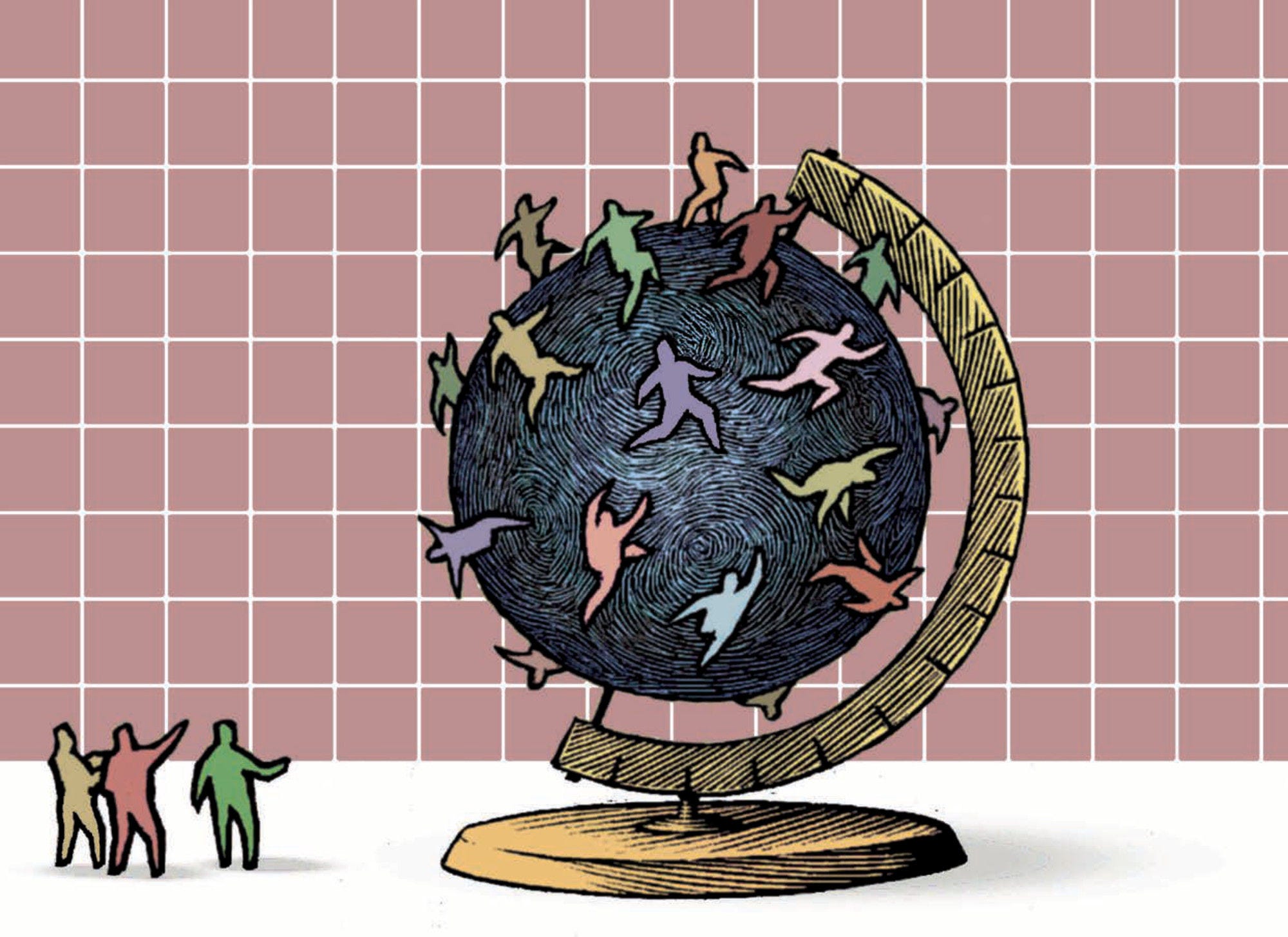In 2017, the Czech Republic received around 46 000 immigrants, compared to 37 500 in 2016. Over the same year, approximately 17 700 persons, including Czech nationals, registered their departure from the country (17 500 in 2016), resulting in a positive net migration of around 28 300.
According to Eurostat, a total of 49 000 new permits were issued in 2017 for a duration of 12 months or more, compared to 62 400 in 2016 (‑21%). Some 44% were granted for employment reasons, followed by family reasons (27%), education (16%) and other reasons (13%). Over the same year, 8 700 new permits were issued for 3 to 11 months.
Around 2 900 permits were issued to tertiary‑level international students and 1 800 to temporary and seasonal labour migrants (excluding intra‑EU migration). In addition, 24 000 intra‑EU postings were recorded in 2017, an increase of 7% compared to 2016. These posted workers were generally on short‑term contracts.
Ukraine, the Slovak Republic and Russia were the top three nationalities of newcomers in 2017. Among the top 15 countries of origin, Ukraine registered the biggest increase (4 600) and Germany the largest decrease (‑400) in flows to the Czech Republic compared to the previous year.
In 2018, the number of first asylum applicants increased by 19.3%, reaching around 1 400. The majority of applicants come from Ukraine (300), Cuba (100) and Georgia (100). The largest increase since 2017 concerned nationals of Cuba (90) and the largest decrease, nationals of Azerbaijan (‑85). Of the 1 400 decisions taken in 2018, 11.1% were positive.
Emigration of Czechs to OECD countries decreased by 0.3%, to 20 000. Almost half (47.8%) migrated to Germany, 8.1% to Austria and 5.1% to Switzerland.
In August 2017, the Czech Republic completed the transposition of EU Directives on seasonal workers and intra‑company transferees by introducing four new types of visas and residence permits. In addition, a new category of residence permits for foreign investors was introduced in the Act on Residence of Aliens.
The Employment Act was also amended in August 2017, introducing stricter criteria for granting permits to broker employment to private temporary‑work agencies. In addition, employers who do not comply with labour regulations regarding the employment of non‑EU workers can now be classified as ‘unreliable employers’ and barred from recruiting labour migrants.
In January 2018, the government doubled the annual quota to fast‑track skilled and semi‑skilled migrants from Ukraine to 19 600 persons per year and introduced new migration programmes for workers from Mongolia (1 000 per year), the Philippines (1 000 per year), Serbia (2 000 workers per year) and highly skilled workers from India (500 per year).
In order to facilitate the visa process and reduce waiting times for non‑EU students from certain countries, a pilot project (“Student Mode”) was launched in 2017.
Important amendments were proposed in mid‑2018 and expected to pass in 2019. These would introduce an obligatory eight‑hour integration course for most permit recipients by 2021. Transposing the EU Students and Researchers Directive, a nine month post‑graduation job‑search permit extension would be available for international students, although without work rights. Annual quotas, divided equally per month, would be set for long‑term residence visas of more than 90 days for business purposes and for employment cards (single permits). Labour market tests would be reduced to 10 days. Compliance measures would be increased while job changes would no longer require approval. However, migrants would not be allowed to change jobs sooner than six months after receiving an employment card.
The Czech Republic updated its integration policy in 2017 by putting a stronger focus on migrant women, children and older migrants as well as informing migrants about the Czech education system. In 2018, the process of building the network of Integration Centres in all 14 regions of the Czech Republic was finished when new Integration Centres were opened in the last region not yet covered. Integration Centres have been operating since 2009.
In 2017, the Act on Asylum was amended to allow videoconferencing in appeal procedures before the court, for decisions on both asylum and detention. In addition, since July 2018, a legislative amendment makes it possible for asylum seekers to request free legal assistance in administrative proceedings. Legal fees are paid by the Ministry of Justice. Furthermore, in 2017, the Czech government transferred the responsibility to provide integration services for beneficiaries of international protection from Caritas to the Refugee Facility Administration, which is managed by the Ministry of Interior.
In 2017, the Ministry of Interior launched its own voluntary return programme and has also developed its cooperation with IOM on voluntary return, focusing on Pakistan, Afghanistan, Iraq and Nigeria.
For further information:
www.mvcr.cz/mvcren
www.czso.cz
